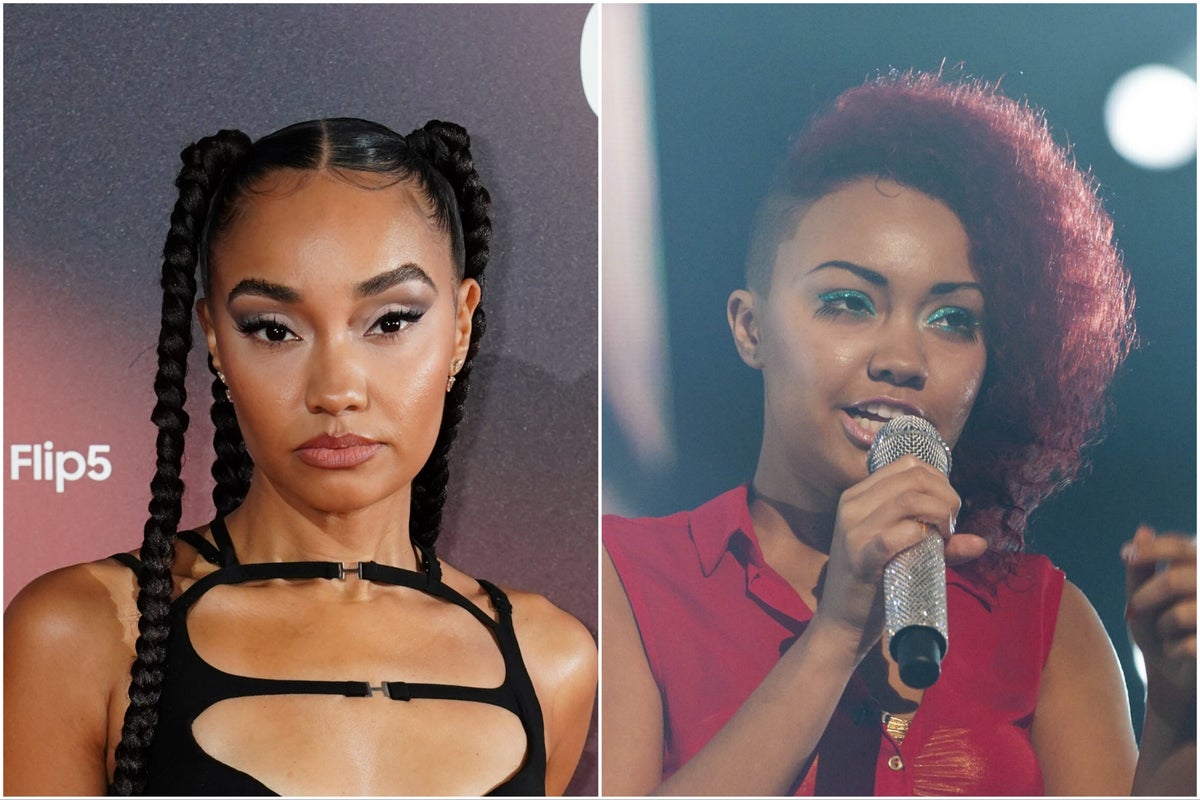
Leigh-Anne Pinnock has recalled the negative experience of having her hair shaved during The X Factor.
The former Little Mix star won the ITV singing competition alongside Perrie Edwards, Jade Thirlwall and Jesy Nelson in 2011.
After Nelson’s departure in 2020, the band went on an indefinite hiatus in 2022. In recent years, Pinnock, 31, has shared insight into her private difficulties while being in the band, namely stemming from being Little Mix’s only Black member, and the way it affected how she was treated by fans.
In her new memoir, Believe, Pinnock looks back at feeling like “an afterthought” in the group’s earliest days.
One segment features the singer reflecting on how the group’s management and the X Factor producers “didn’t seem to know how to define [her] identity”, and looked to other figures instead.
“Rather than encourage me to be myself or give me the space for my own personality to shine through, instead they tried to simply copy and paste an identity from somewhere else. Notably, Rihanna,” Pinnock writes.
“During the makeover stage on The X Factor, the producers gave me her iconic red hairstyle – from her Loud era – an exact match, shade for shade. And they shaved one side of my head.”
Leigh-Anne Pinnock on The X Factor in 2011— (Shutterstock)
Pinnock notes that this choice to give her a similar hairstyle to the Bajan singer’s look at the time was, in part, the team not knowing how to manage her hair as well as “an attempt to give me this kind of ‘punky pop’ personality, which wasn’t me at all”.
She continues: “I remember the sickening buzz of the clippers, my curls dropping to the floor around my feet. I stared at this girl in the mirror, a face I barely recognised.
“Who was she? What did other people see when they looked at me? Did they even see me at all?”
Leigh-Anne Pinnock— (Getty Images for Bauer Media)
Elsewhere in the memoir, released on Thursday (26 October), Pinnock shared that her out-of-place feeling led to an inability to let her “goofy and ridiculous” personality shine through to the public.
“For some reason, this real version of myself, the happy, vibrant, fun-loving me, wasn’t what anyone was seeing,” she writes.
“I wasn’t playing a role, or trying to be anything I’m not, but it just wasn’t connecting with people and I wasn’t able to let this side of me shine.”
Believe also sees the “Don’t Say Love” singer reflect on the backlash she received from Black commentators on her 2021 documentary Leigh-Anne: Race, Pop & Power.







